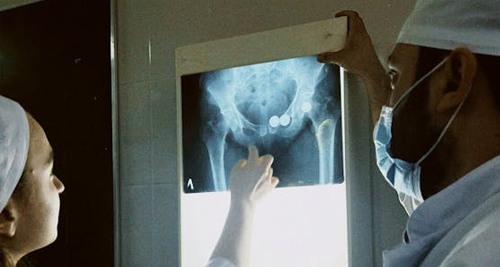Diagnosis of a Broken Hip
Diagnosis of a Broken Hip involves clinical evaluation and imaging tests to determine the location and severity of the fracture. Early and accurate diagnosis of a broken hip ensures prompt treatment, reduces pain, and improves long-term outcomes, especially in older patients at risk for complications.
The process begins with a physical examination. A doctor will ask about the injury, review symptoms, and assess leg alignment, movement, and sensitivity. If the leg appears shortened, rotated, or immobile, a fracture is strongly suspected. Gentle palpation and range-of-motion tests help locate pain points, but movement is kept minimal to avoid further injury.
X-rays are the first-line imaging tool. They clearly show most hip fractures and help distinguish between femoral neck and intertrochanteric breaks. X-rays also help surgeons plan the best treatment approach, including whether internal fixation or hip replacement is needed.
Diagnosis of a Broken Hip
In some cases, particularly with stress fractures or in people with strong muscle tone, an X-ray may appear normal. If symptoms persist despite clear X-rays, doctors may order a CT scan or MRI to get a more detailed view of the bone structure and detect hidden fractures.
Blood tests may be performed to check for underlying conditions, such as anaemia or infection. These results help in pre-operative planning and assessing overall health status before surgery.
In South Africa, private healthcare facilities often offer faster access to imaging and orthopaedic consultation. Public hospitals treat most cases effectively, but waiting times and access to advanced imaging may vary by region.
A prompt and accurate diagnosis of a broken hip not only supports immediate treatment but also lowers the risk of post-surgical complications such as pneumonia, deep vein thrombosis (DVT), or pressure sores from prolonged immobility.
[Next: Treatment of a Broken Hip →]


